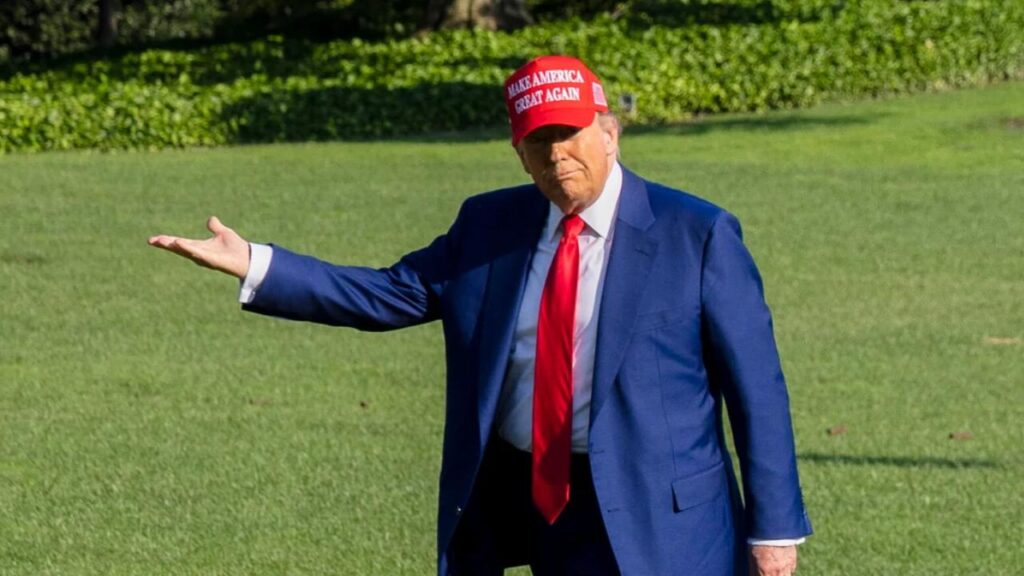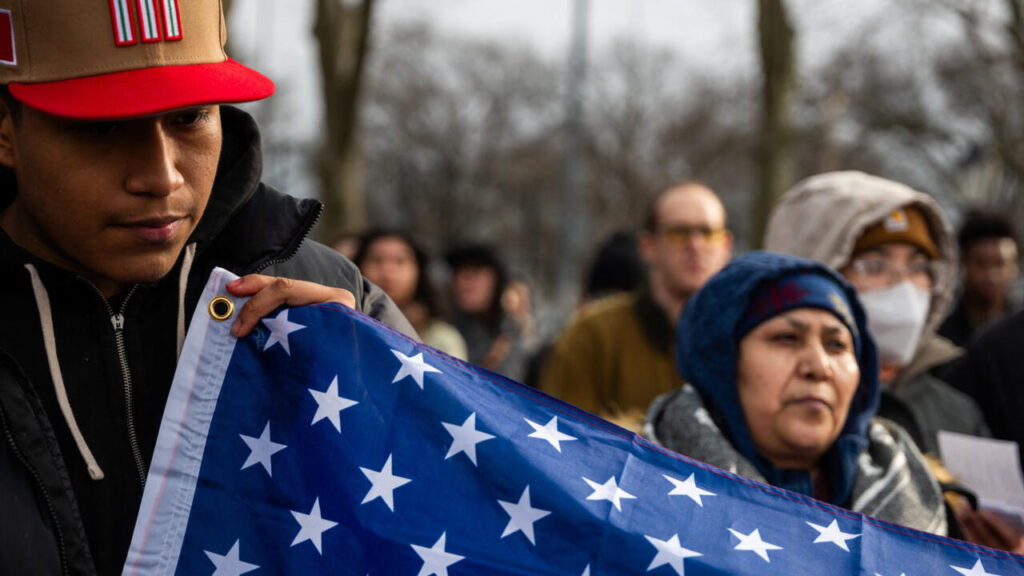In a move that has rocked both political circles and immigrant advocacy groups across the nation, the U.S. Supreme Court has given the green light for the Trump administration to resume a highly controversial practice—secret deportations. This decision has sparked a fiery debate, with many questioning the implications for human rights, due process, and the future of immigration policy in America.

The Court’s decision marks a dramatic turn in the debate over deportation procedures. For the past few years, this issue had been held up in lower courts, with immigration advocates pushing back against a policy that they argued violated due process rights. Now, with the Supreme Court’s approval, the Trump administration can move forward with resuming deportations under a process that critics say bypasses essential protections for immigrants.
Trump Administration Gets Green Light to Resume Secret Deportations
| Insight | Details |
|---|---|
| SCOTUS Decision | The U.S. Supreme Court allows resumption of secret deportations. |
| Secret Deportations | Deportations will proceed without public hearings or full legal transparency. |
| Impacts on Immigrants | Legal experts fear due process violations, especially for vulnerable populations. |
| Political Reactions | The decision has divided lawmakers, with sharp criticism from Democratic leaders. |
The Supreme Court’s decision to allow secret deportations to resume is a dramatic shift in U.S. immigration policy. For many, it is a victory for those who believe in enforcing immigration laws without delay. For others, it represents a dark turn in the erosion of immigrants’ rights and due process. This ruling is sure to remain a hot-button issue in U.S. politics for the foreseeable future, with both legal battles and political ramifications set to unfold in the months ahead.
What Are Secret Deportations?
Secret deportations refer to the expedited removal of individuals from the U.S. without the full legal process typically afforded in such cases. Under the Trump administration’s approach, certain individuals, particularly those without legal status or who are flagged for expedited removal, could be deported without a court hearing or public oversight. Critics have argued that this undermines fundamental due process protections and places vulnerable immigrants at risk of unfair deportations.
The practice, which many activists have dubbed “secret deportations,” has been a point of contention for years. During the Trump era, it was part of a broader crackdown on illegal immigration, characterized by swift enforcement actions and aggressive deportation efforts. The new ruling gives the Trump administration the green light to resume these actions, despite objections from civil rights groups.
The Supreme Court’s Ruling
The Supreme Court’s decision is seen as a major victory for the Trump administration’s hardline immigration policies. By lifting restrictions on secret deportations, the Court effectively allowed the government to bypass some of the safeguards that would ordinarily ensure individuals are not wrongfully removed from the U.S. Without access to public hearings or an independent review of their case, individuals could be deported in a matter of days or weeks.
Critics argue that this ruling violates the constitutional rights of immigrants, stripping them of the chance to make their case in front of a judge. Supporters, on the other hand, claim that it is a necessary tool for handling the large number of undocumented individuals in the U.S. and reducing the backlog in immigration courts.

Why This Matters
This decision is more than just a legal ruling; it could significantly alter the immigration landscape in the United States. Immigration advocates fear that the ruling will disproportionately affect immigrants from Latin America, Asia, and other regions where deportations are most likely. The process has already been shown to disproportionately impact individuals who may have valid claims for asylum or protection under U.S. law.
The resumption of secret deportations also raises broader concerns about how this decision fits into the larger trend of diminishing due process protections for immigrants. The legal community is concerned that the ruling could set a precedent that undermines transparency and fairness in deportation proceedings.
Moreover, with the Trump administration pushing forward with its deportation agenda, this decision could have long-lasting impacts on both the political and legal battles over immigration policy in the U.S. It is expected that the ruling will only intensify the already heated debates in Congress over the future of the nation’s immigration system.
The Political Fallout
The political ramifications of the Supreme Court’s decision are wide-reaching. On one hand, Republican lawmakers have celebrated the ruling as a win for national security and enforcement of immigration laws. They argue that the decision will help ensure that the country remains secure and that people who are in the U.S. illegally are removed swiftly.
On the other hand, Democratic leaders and immigrant rights groups have fiercely criticized the decision. They argue that this policy undermines the fundamental rights of immigrants, especially those fleeing violence or persecution in their home countries. They fear that secret deportations will lead to families being torn apart and people being sent back to dangerous situations without a fair chance to present their case.
“People have the right to their day in court,” said Senator Dick Durbin, a vocal critic of the decision. “This ruling sets a dangerous precedent that undermines our justice system and violates the core principles upon which this country was built.”
What’s Next?
As of now, the Trump administration is expected to move quickly to implement the Supreme Court’s ruling, resuming secret deportations in the coming weeks. Immigration advocates are already preparing for legal challenges and rallying public opposition, arguing that this decision sets a dangerous precedent for future immigration enforcement actions.
In the meantime, lawmakers in Congress will likely face increasing pressure from both sides of the political aisle to address the broader issue of immigration reform. While some Republicans are calling for more aggressive enforcement measures, Democrats are pushing for comprehensive immigration reform that would offer protections for undocumented individuals already in the U.S.
FAQs
What are secret deportations?
Secret deportations are the expedited removal of individuals from the U.S. without a court hearing or public oversight, often under expedited removal processes.
Why did the Supreme Court allow secret deportations?
The Court ruled that the Trump administration could resume secret deportations as a way to speed up the process of removing individuals from the U.S. without a hearing in certain cases.
How will secret deportations affect immigrants?
Critics argue that secret deportations could put vulnerable immigrants at risk by denying them a fair chance to present their case in court, potentially violating their due process rights.






